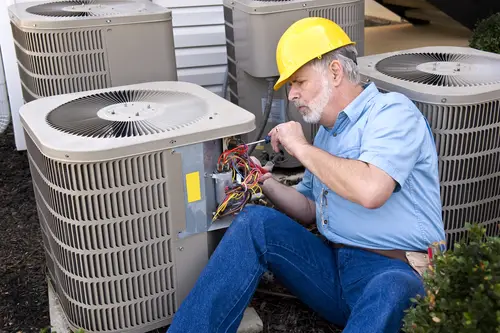As the summer months approach, the demand for cooling solutions, such as air conditioners, rises significantly. Whether you’re a homeowner or a business owner, having a functional air conditioner is essential for maintaining a comfortable indoor environment. However, understanding the ins and outs of air conditioning systems can be overwhelming, especially if you’re not familiar with the technology.
In this comprehensive guide, we’ll address some of the most common questions related to air conditioners, providing you with valuable insights to help you make informed decisions about your cooling needs.
1. How Does an Air Conditioner Work?
Before we delve into specific questions, let’s start with the basics. Air conditioners operate on the principles of refrigeration. They remove heat from the indoor air and transfer it outside, cooling the indoor space in the process. The primary components of an air conditioner include the compressor, condenser, evaporator, and expansion valve, all of which work together to facilitate the cooling process.

Credit: www.amazon.com
2. What Size Air Conditioner Do I Need?
One of the most crucial factors to consider when purchasing an air conditioner is the size of the unit. An undersized unit will struggle to cool the space adequately, while an oversized unit will cycle on and off frequently, leading to energy inefficiency and poor humidity control. To determine the right size for your air conditioner, it’s essential to consider factors such as the square footage of the space, the local climate, and the level of insulation in the building.
3. How Often Should I Service My Air Conditioner?
Regular maintenance is key to ensuring the optimal performance and longevity of your air conditioner. It’s recommended to have your air conditioner serviced at least once a year, preferably before the start of the cooling season. During a routine service visit, a qualified technician will inspect and clean the various components of the air conditioner, check for refrigerant leaks, and ensure that the system is operating efficiently.
4. What Are Some Common Air Conditioner Problems?
Like any mechanical system, air conditioners are susceptible to a range of issues that can affect their performance. Some common problems include refrigerant leaks, frozen evaporator coils, faulty compressors, and electrical malfunctions. It’s essential to address these issues promptly to prevent further damage to the system and ensure uninterrupted comfort.
| Common Air Conditioner Problems | Potential Causes |
|---|---|
| Refrigerant Leaks | Worn service valves, faulty connections, or damaged coils |
| Frozen Evaporator Coils | Restricted airflow, low refrigerant, or a malfunctioning thermostat |
| Faulty Compressors | Electrical issues, mechanical wear, or overheating |
5. What Are the Benefits of Upgrading to a High-Efficiency Air Conditioner?
Upgrading to a high-efficiency air conditioner can offer several advantages, including reduced energy consumption, lower utility bills, and enhanced comfort. High-efficiency units are designed to deliver superior performance while minimizing environmental impact. Additionally, many modern air conditioners come with advanced features such as programmable thermostats, quiet operation, and improved indoor air quality.
6. How Can I Improve the Efficiency of My Air Conditioner?
There are several strategies to boost the efficiency of your air conditioner and optimize its performance:
- Regularly replace or clean the air filters to ensure proper airflow
- Seal any air leaks in the ductwork to prevent cool air from escaping
- Install a programmable thermostat to regulate the temperature based on your schedule
- Shade windows and use curtains to block out the sun’s heat during the hottest parts of the day
- Minimize heat-generating activities, such as cooking, during peak hours
7. What Is the Average Lifespan of an Air Conditioner?
The average lifespan of a well-maintained air conditioner is approximately 15 to 20 years. However, this can vary based on factors such as usage patterns, maintenance history, and the quality of the unit. Investing in routine maintenance and addressing any issues promptly can help prolong the life of your air conditioner and maximize its efficiency.
8. Should I Repair or Replace My Old Air Conditioner?
When faced with an aging or malfunctioning air conditioner, deciding between repairs and replacement can be challenging. As a general guideline, if the cost of repairs exceeds 50% of the value of a new unit, or if the system is nearing the end of its expected lifespan, it may be more cost-effective to invest in a replacement. Newer models offer improved efficiency and performance, making them a worthy long-term investment.
Conclusion
Understanding the various aspects of air conditioners is essential for ensuring optimal comfort and efficiency in your indoor environment. By familiarizing yourself with the fundamentals of air conditioner operation, maintenance best practices, and efficiency enhancements, you can make well-informed decisions regarding your cooling needs. Whether it’s choosing the right size unit, addressing common issues, or contemplating an upgrade, arming yourself with knowledge is the first step towards a cool and comfortable space.

